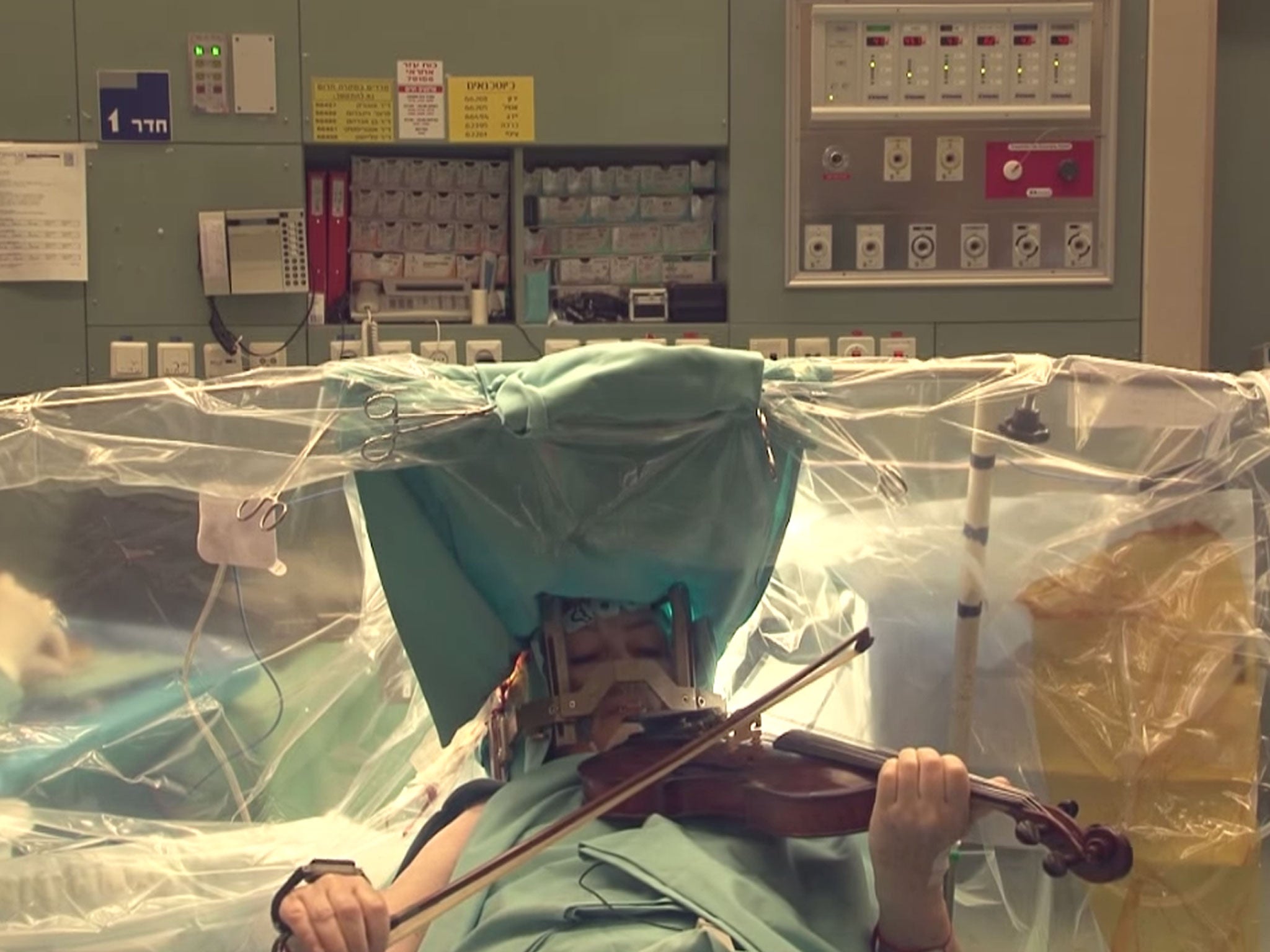Video shows incredible moment ex-violinist regains her ability to play while surgeons operate on her brain
"Now I can start living again," the violinist said after the operation.

Your support helps us to tell the story
From reproductive rights to climate change to Big Tech, The Independent is on the ground when the story is developing. Whether it's investigating the financials of Elon Musk's pro-Trump PAC or producing our latest documentary, 'The A Word', which shines a light on the American women fighting for reproductive rights, we know how important it is to parse out the facts from the messaging.
At such a critical moment in US history, we need reporters on the ground. Your donation allows us to keep sending journalists to speak to both sides of the story.
The Independent is trusted by Americans across the entire political spectrum. And unlike many other quality news outlets, we choose not to lock Americans out of our reporting and analysis with paywalls. We believe quality journalism should be available to everyone, paid for by those who can afford it.
Your support makes all the difference.A former violinist, whose career was cut short by a debilitating movement disorder, regained her ability to play while surgeons in Israel operated on her brain.
Naomi Elishuv had played for a number of orchestras, including Lithuanian National Symphony Orchestra, but was forced to stop performing professionally two decades ago when she began suffering from a condition called essential tremor.
During the procedure which was performed under local anaesthetic, surgeons asked Elishuv to play so her brain was active.
The footage shows Elishuv shaking and struggling to play the violin before she is wheeled into surgery. Surgeons are then seen operating on her brain behind a huge plastic curtain.
As soon as the procedure is complete, the violinist's hands become steady, and she is able to play unhindered for the first time in 20 years. Overcome with emotion, she cries "I have control!" according to a translation by RT.
Essential tremor affects the arms and hands, but can also affect the head, face, jaw, tongue and feet. The disorder gradually worsens over time, and at its most severe can be disabling and make daily activities extremely difficult, according to the NHS.
When patients reach this stage, they may be offered two types of surgery: a thalamotomy or deep brain stimulation – the latter which Elishuv underwent.
Before the operation, she said her “greatest love” was playing the violin, adding it was “very difficult” to stop performing professionally and instead work as a teacher when she was “used to playing her entire life."
"Now I can start living again," Elishuv told reporters after surgeons at the Tel Aviv Sourasky Medical Centre completed the operation.
"It’s too bad I only heard of the operation now,"she added.
"I can’t wait to resume normal life. I want to play, to sign a paper, to drink tea without spilling it,”Elishuv said before entering surgery, Israeli daily newspaper Haaretz reported.
Professor Yitzhak Fried, the hospital’s director of Functional Neurosurgery, who operated on Elishuv on Tuesday morning, told the newspaper that he cured Elishuv by implanting a brain pacemaker with electrodes into the area causing the tremor.
Through a minute hole in Elishuv skull, the team operated on her brain and implanted a 1.3millimetre electrode into the thalamus region of her brain. In the second phase, the exact part of the brain causing the tremor was stimulated with electricity.
"The operation was performed under local anaesthesia. In order to place the electrode in the optimal location, we wanted her active participation in real-time, so we asked Elishuv to play the violin during the surgery. During the procedure, she did not feel pain because these areas of the brain do not feel pain," he said.
Join our commenting forum
Join thought-provoking conversations, follow other Independent readers and see their replies
Comments